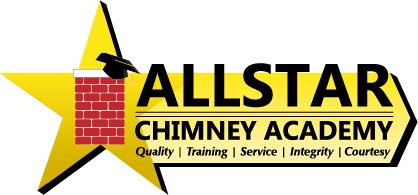
Chimney Sweep
New Orleans, Lousiana
Call Today (504) 739-9881
What makes sweeping a chimney different in New Orleans than other areas?
Getting a chimney sweep in New Orleans, LA may be different than in other parts of the country due to the unique climate and environmental factors in the area. New Orleans has a humid subtropical climate, which can lead to moisture-related problems such as mold growth, rust, and deterioration of chimney materials. The high humidity in the area can also lead to an increase in the rate of creosote buildup in chimneys, which can increase the risk of chimney fires and other needed repairs down the line.
Another thing that is often overlooked until it is too late is that New Orleans is located in an area prone to hurricanes and tropical storms, which can be catastrophic to chimneys. That’s why Sootaway recommends everyone in New Orleans gets their chimney and fireplace system inspected at least once a year and swept/repaired when necessary to ensure they are in good condition and can withstand the forces of nature.
What is Soot and Creosote and how does it affect my chimney?
Soot and creosote are two of the most dangerous substances that can accumulate in a chimney. Soot is a black, powdery substance that is made up of carbon particles and can be released into the air if not cleaned properly. Inhaling soot can cause respiratory problems and worsen existing health conditions such as asthma, allergies or bronchitis.
Creosote, on the other hand, is a highly flammable substance that is created when wood is burned. It sticks to the walls of the chimney and can ignite, causing a chimney fire that can quickly spread to other parts of the home. In addition to being a fire hazard, creosote buildup can also reduce the efficiency of your fireplace and lead to higher energy bills.
The best way to prevent the dangers of soot and creosote is to have your chimney cleaned and inspected annually by a professional chimney sweep. Don’t wait until it’s too late, invest in the safety and well-being of your home today.
Awards and Certifications

the Professional Chimney Guild of America (PCGA), it is an organization that represents chimney professionals in the United States. The PCGA is committed to promoting education, safety, and professionalism in the chimney industry.

Technicians who are certified by Allstar Chimney Academy have received extensive training in chimney cleaning and repair, and are well-equipped to handle any issues that may arise during the cleaning process.
Why do I need to have my fireplace cleaned annually?
Getting your fireplace cleaned annually is an important step in maintaining a safe and efficient heating system for your home. Over time, the buildup of soot, creosote, and debris in your chimney can pose serious safety hazards, such as chimney fires and carbon monoxide poisoning.
By having your fireplace cleaned annually by a professional chimney sweep, you can rest assured that your chimney is free from any dangerous obstructions and is working as efficiently as possible.
Not only will a clean chimney keep your family safe, but it will also save you money on energy bills by allowing your fireplace to burn more efficiently. So why wait? Invest in the safety and comfort of your home today by scheduling an annual fireplace cleaning with a trusted chimney sweep.

What are some areas of concern when it comes to the fireplace system?
Some common areas of concern when it comes to chimneys and fireplaces include ash dump doors, flue pipes, and lock top dampers. Ash dump doors are designed to allow for the safe disposal of ashes, but they can become damaged or warped over time. A certified technician can inspect the door and make any necessary repairs or replacements.
Flue pipes are responsible for venting smoke and other gases out of your home, and if they become damaged or blocked, it can pose a fire hazard. Lock top dampers are a newer type of damper that helps to prevent heat loss and improve energy efficiency, but they require proper installation and maintenance to work effectively.
Fireplaces themselves also require regular maintenance, including the removal of ash and debris, and the cleaning of the chimney to prevent soot and creosote buildup. A certified technician can perform these tasks safely and efficiently, reducing the risk of fire and ensuring the longevity of your fireplace.
In New Orleans, there are additional considerations when it comes to chimneys and fireplaces. The humid subtropical climate can lead to moisture-related problems such as mold growth, rust, and deterioration of chimney materials. Chimney sweeps in the area may need to inspect and repair chimneys more frequently to ensure they are in good condition and can withstand the forces of nature.
Overall, proper maintenance and cleaning of chimneys and fireplaces is essential to prevent the risk of fire and ensure the safe and efficient operation of your heating system. By working with a certified chimney sweep technician, you can rest assured that your chimney and fireplace are in good hands.
FAQ (Frequently Asked Questions)
How often should I have my chimney cleaned and inspected?
The National Fire Protection Association recommends that chimneys should be inspected at least once a year, and cleaned as needed. However, the frequency of cleaning and inspection may vary depending on several factors, including the type of fuel you burn, how often you use your chimney, and the age and condition of your chimney. For example, if you burn wood frequently, you may need to have your chimney cleaned more often than if you burn gas.
Similarly, if you notice any signs of damage or obstruction, such as smoke backing up into your home, it is important to have your chimney inspected and cleaned right away. Ultimately, the best way to determine how often you should have your chimney cleaned and inspected is to consult with a professional chimney sweep who can assess your specific situation and make recommendations based on your needs.
What are the signs that my chimney needs to be cleaned or repaired?
Several signs can indicate that your chimney needs to be cleaned or repaired. The most common signs include smoke backing up into your home, soot buildup in your fireplace or around your chimney, and a strong, unpleasant odor coming from your fireplace or chimney. Cracks or gaps in the chimney or chimney liner, water leaks or water damage near your chimney, and damaged or missing chimney caps or other accessories are other common signs.
Animal or bird nests in the chimney, white or gray buildup on the inside of the chimney (a sign of creosote), rust or corrosion on the chimney or fireplace components, and a decrease in the efficiency of your fireplace or heating system can also indicate the need for cleaning or repair.
If you notice any of these signs, it is important to have your chimney inspected and cleaned or repaired by a professional chimney sweep as soon as possible to prevent further damage or safety hazards.
What are the most common causes of chimney fires, and how can I prevent them?
The most common causes of chimney fires are the buildup of creosote and the accumulation of debris or foreign objects in the chimney. Creosote is a highly flammable substance that forms when wood burns, and it can accumulate on the inside of your chimney over time, creating a fire hazard. Debris such as leaves, sticks, and animal nests can also collect in the chimney and block airflow, increasing the risk of a fire. To prevent chimney fires, it is essential to have your chimney cleaned and inspected regularly by a professional chimney sweep.
Burning dry, seasoned wood and avoiding the use of accelerants such as gasoline or kerosene can also help reduce the risk of a fire. Additionally, using a chimney cap or spark arrestor can help prevent debris and foreign objects from entering your chimney, and ensuring that your chimney is properly installed and vented can also reduce the risk of fire.
Finally, it is crucial to have working smoke detectors and carbon monoxide detectors in your home to alert you to any potential safety hazards.
How can I tell if my chimney is functioning efficiently, and what can I do to improve its performance?
There are several ways to determine if your chimney is functioning efficiently. One of the most important indicators is the amount of smoke coming from your chimney when you use your fireplace or wood stove. If there is a lot of smoke, it could be a sign that your chimney is not drawing properly, which can cause poor performance and even safety hazards. Another indicator is the amount of heat that is being produced by your fireplace or wood stove.
If you notice that your fireplace or stove is not producing as much heat as it used to, it could be a sign that your chimney is not functioning efficiently. To improve your chimney’s performance, you can take several steps. First, ensure that your chimney is clean and free from obstructions such as creosote buildup or debris. Second, make sure that your chimney is properly vented and that there are no leaks or gaps that could cause drafts or backdrafts.
Third, consider installing a chimney cap or spark arrestor to prevent debris and foreign objects from entering your chimney. Finally, using dry, seasoned wood and avoiding the use of accelerants such as gasoline or kerosene can also help improve your chimney’s performance.
If you are unsure about your chimney’s efficiency, it is always best to consult with a professional chimney sweep who can assess your specific situation and make recommendations based on your needs.

